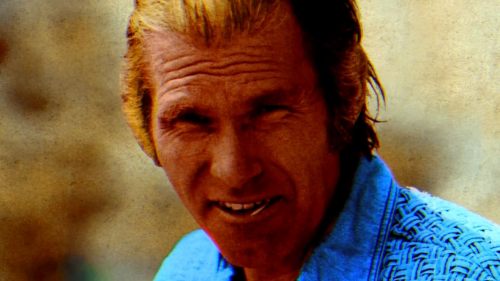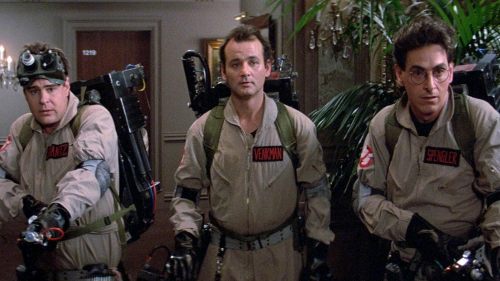Collins’ Crypt: FLOWERS IN THE ATTIC - A Wes Craven Film?
After Nightmare on Elm Street hit screens (35 years ago this week!) and made a lot of money plus a handful of good reviews, Wes Craven should have been on top of the world, but instead got hit with a string of bad luck and a habit of working with terrible producers. Unfortunate timing meant that his "I did this to pay rent and buy food" Hills Have Eyes sequel, produced before Elm Street, actually came out *after*, which damaged his newfound market value a bit, and then his attempt at breaking into the mainstream with Deadly Friend (1986) turned out to be a disaster. Producers, selling the film on "From the director of Nightmare On Elm Street", demanded more gore and violence added into his romantic sci-fi thriller, leaving it tonally confused and with an ending that no one on Earth seems to be able to understand. The film flopped hard - his attempt at "mainstream" success instead became his lowest-grossing wide-release film.
Thankfully, he bounced back with Serpent and the Rainbow (followed by the minor success of Shocker and then People Under The Stairs, which nearly topped Elm Street as his biggest hit to date), but the Deadly Friend experience is one he did not want to repeat. Which is hilarious in a way, because in an alternate universe, his next movie would have been Flowers in the Attic, which like Deadly Friend was based on a novel and starred Kristy Swanson. And going beyond that, the finished film (ultimately directed by Jeffrey Bloom and released in November of 1987) also got mangled and reshot by producers who wanted to sell a different movie than its filmmaker made, something that probably would have happened to Wes as well had he gotten the Flowers gig.
Or, should I say, *kept* the gig, as he was indeed hired to write the script and planned to direct as well. His script was dated March of 1985, which means he was currently only a few months out from Elm Street's success - clearly a "get" for an exec at the time. However, the producers rejected his script on account of it being too dark, and so he walked away from the production entirely to get his heart broken on Deadly Friend instead, and the Flowers producers started over. But for the most part he stayed true to the novel, which wasn't a surprise since VC Andrews had script approval (she died before the film was released, however), so I am curious what exactly they were so afraid of to reject it outright rather than just work with the filmmaker to reach a compromise on this or that thing. Especially since the finished version borrowed a few of his changes to the source material.

For example, Craven's biggest diversion from the book took the form of a new character, named Doberman, a vicious worker of the estate who has guard dogs that help him in what seems to be his primary goal in life: catching the children breaking a rule so that he can inflict violence upon them, or worse (at one point grandmother Olivia basically gives him the OK to murder them). He essentially takes the place of the book's John Amos, the house butler who is slightly sympathetic to the children, which means there is no one on their side in Craven's take on the material. The finished film kept the dogs (German Shepherds, not Dobermans) and a nameless caretaker who is too vaguely defined to be considered a genuine antagonist, but restored Amos, though he's essentially a glorified extra who opens doors and the like but serves no function in the film.
It's easy to see why the dogs (and their master) were added - the story doesn't have a lot of action or thrills, so peppering in attacks/chases from the dogs and/or Doberman every 20-25 minutes gave it something to spice it up. Because otherwise, it'd be a fairly uneventful tale since the producers decided to strip it of its incestuous elements. Curiously, Craven's script (which is available online) didn't exactly flirt with NC-17 level material - if anything it toned DOWN some of the elements from Andrews' bestseller, including the nature of Chris and Cathy's sex scene (I'm assuming you know the Flowers story well enough by now that I don't need a recap, but if that's not the case - read Emily's piece here and then come back!). In the novel, Chris rapes Cathy in a rage after he sees her kiss her would-be stepfather as he slept, though she later forgives him and admits she wanted him too, softening the blow somewhat though it's still a rather disturbing scene. In Craven's script, it's fully consensual, and not explicit in any way - after a vicious beating from their grandmother, the two of them are naked as their clothes hurt too much to put back on after treating each others' wounds, and they embrace for comfort only for nature (we're speaking in - heh - relative terms here) to take its course, with a kiss followed by literal under the covers intercourse (Craven specifically notes that the sheet is over them).
And that's the extent of their incestuous relationship; nothing further happens between them - not that it really could, since Craven delays this plot point until there are less than 20 pages remaining of his 118-page script. In the book it happened a bit earlier, but only because its ending stretched a bit further in time than its film counterpart, with the children escaping by train and discovering that their mother was poisoning them, long after she actually moved away with her new husband. On Arrow's special edition Blu-ray (in stores today) actor Jeb Adams, who played Chris, says that they did film some of the risque material (a few kisses that were perhaps a bit much for brother and sister, but were otherwise rather chaste) but even those were removed from the finished version; in the finished cut, Chris looking at her in the tub (covered by bubbles) is about as deep as it goes. The filmmakers did allow the mother's own taboo past to remain intact - she still married (and bore children to) her half-uncle - but when it came to the kids, they seemingly had no intention of allowing them to have sex.

As for the ending, once again it seems Craven's ideas that they "rejected" were closer to what they ended up using anyway. Craven's script and the finished cut both end with the children breaking free of the attic and crashing their mother's wedding, shocking her guests who all believed her to be childless. The key difference is that Craven let the children's mother (Corinne) live and offed Olivia instead (in hilarious fashion - another body falls on her and crushes her), whereas the theatrical cut of the film ended with Corinne falling to her death ("Eat the cookie, mother!") and the grandmother watching the children leave on their own accord from her window. As die-hard fans know, this wasn't Bloom's original intention; the Blu-ray has the ending he shot and preferred, but was scrapped and reshot by the nervous producers in favor of the one we're more familiar with.
So now that we can see the originally shot climax, what's different? Again, not really all that much - Bloom's ending leaves the grandfather alive, curiously, but also spares both Corinne and Olivia and restores John Amos' role as an eventual ally for the children, so it's closest to being faithful to the book. Also, it would have been the easiest to follow for a sequel since Andrews' followup novel Petals on the Wind features both women in key roles, which would require a retcon, though by then Andrews had passed away so perhaps they weren't worried about having to stick to her version of events at all. Or maybe they decided not to make a sequel before audiences decided for them, since the movie tanked upon release in 1987 with a mere $15m gross - and if you think "that's not too bad" then consider the films right above it on the chart are notorious flop punchlines Superman IV and Over the Top. Yes, more people paid to see Stallone arm wrestle than the adaptation of a book that has sold 40 million copies.
Would Wes Craven's version of the film been more successful? Hard to say - it was certainly more exciting on the page, but it was also longer (if presented fully intact, his script would have resulted in a film running just under two hours), and likely would have gotten the R rating that the eventual film was able to avoid by removing the adolescent incest. As the 2014 Lifetime movie proved, there is certainly an audience that wants to see this particular story on-screen (it basically got This is Us ratings, to compare to another family drama), but it's worth noting that their version was incredibly faithful to the source material's events (albeit played up for camp effect), so perhaps hearing that the 1987 film was toned down and changed the ending simply turned too many people away, something that probably would have hurt Craven's movie as well. But it all worked out in a way; he was already shooting Serpent and the Rainbow before Flowers ended up being finished, and he did just fine for a while, while the Lifetime version got all the sequels this incarnation was denied, so Craven fans and Andrews fans got what they wanted in the end, but those who enjoy both will forever wonder what could have been.



